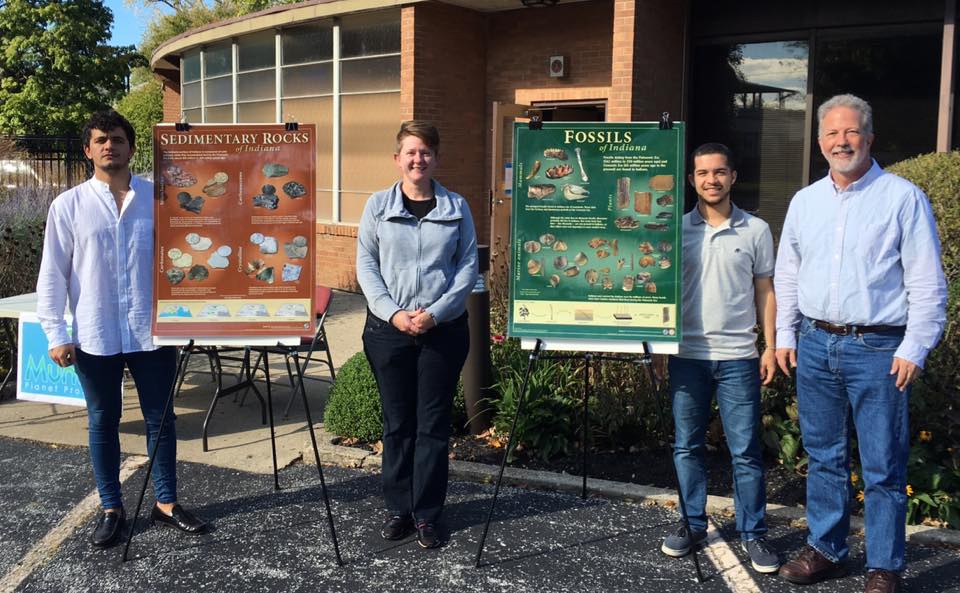
As we celebrate the 6th World Company Day (WCD) today, we invite some of the Signatories from around the world to share their experience of World Company Day 2018. We hope that these stories will encourage you, that you too can make a difference in your daily work. If you would like to share your stories, you can do so through our online form or via email to info@worldcompanyday.org.
WCD talks to John A. Mundell, P.E., L.P.G., founder/president of Mundell & Associates, an Environmental consulting firm from the United States to find out about what they are doing to shape the world.
World Company Day (WCD): What do you do as a company?
John Mundell (JM): Mundell & Associates is an earth and environmental consulting company that brings our experiences, education, talents, personalities and group synergy together to support clients in solving their most difficult earth science and environmental challenges. As such, we provide the technical support for other businesses to investigate industrial areas that have become
WCD: What is your purpose as a company and why is it important?
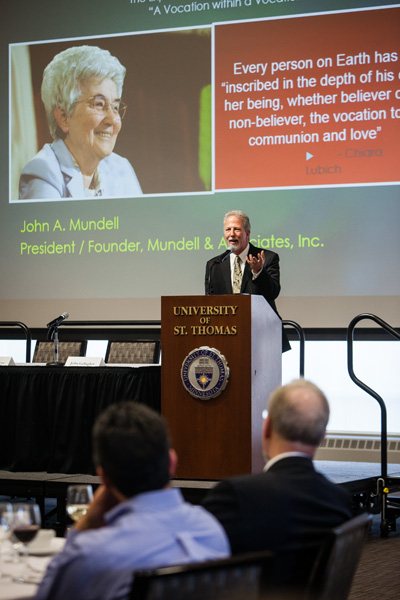
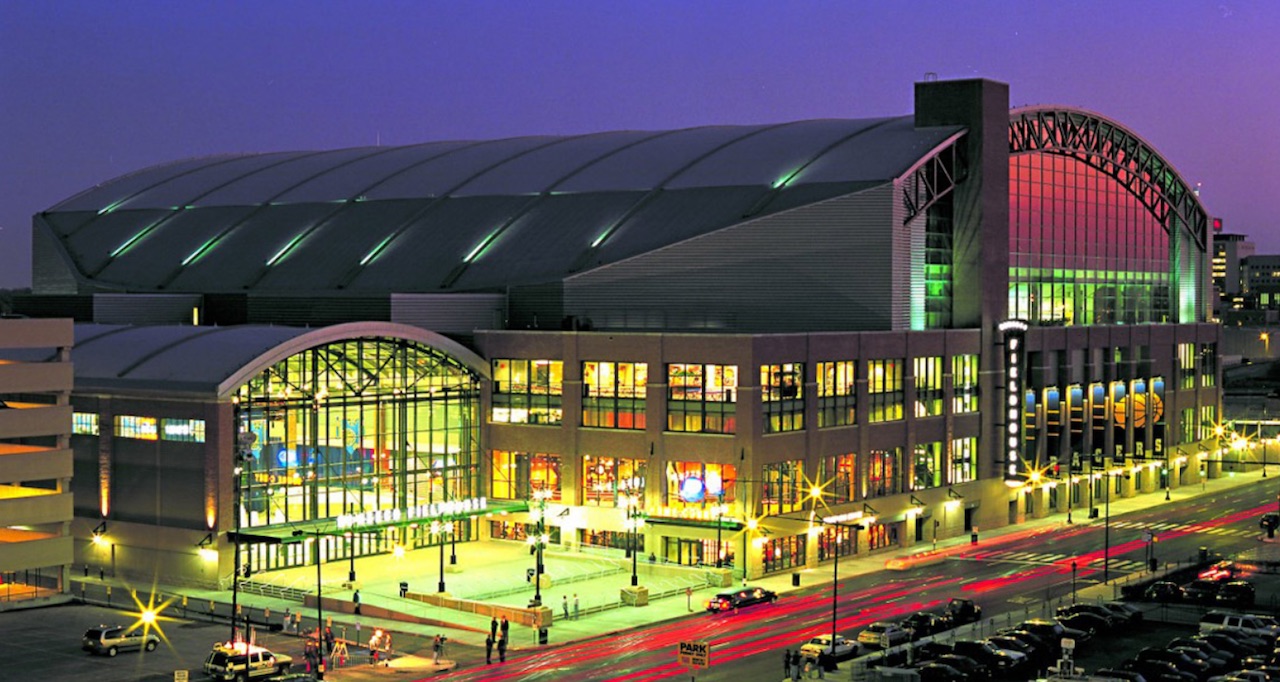
JM: We are part of the Economy of Communion network of companies that shared their profits and fight to end poverty in the world. MUNDELL is a global leader in environmental science and engineering innovation for the good of our clients, for the well-being of our planet, and for the needs of the global community. We are a
WCD: Give an example of how a product or a service provided by you is making an impact in shaping a better world?
JM: One example is the geophysical survey services we provide. Prior to fifteen years ago, many sites across the world could not be cleaned of contamination because the subsurface conditions were too complex, and drilling holes in the ground to understand the subsurface did not provide the level of detailed needed. With our geophysical services group, MUNDELL has essentially been able to take an “MRI-Type” image of the earth so that detailed pictures of the subsurface are obtained, and the location and type of impacts identified. This has allowed companies from Brazil, South America to Ireland, the State of Kentucky in the U.S. to clean up their pollution problems and achieve pre-industrial conditions again. This returns the planet to the next generation in at least as good a shape as it was before we used it for industrialization.
WCD: Can you share a story that best describes the culture of your company?
JM: We run an Economy of Communion internship program in our company, and invite young people from all over the world to come and learn about how a business is run according to EoC principles. These EoC interns share so many experiences in which their lives have been transformed by working in our company, and also how they have each made impacts. Let me share just one of those experiences that can give you an idea of the concrete impact that the vision of the EoC can have on them, the company and the community. I call this experience “The Coffee Shop”.
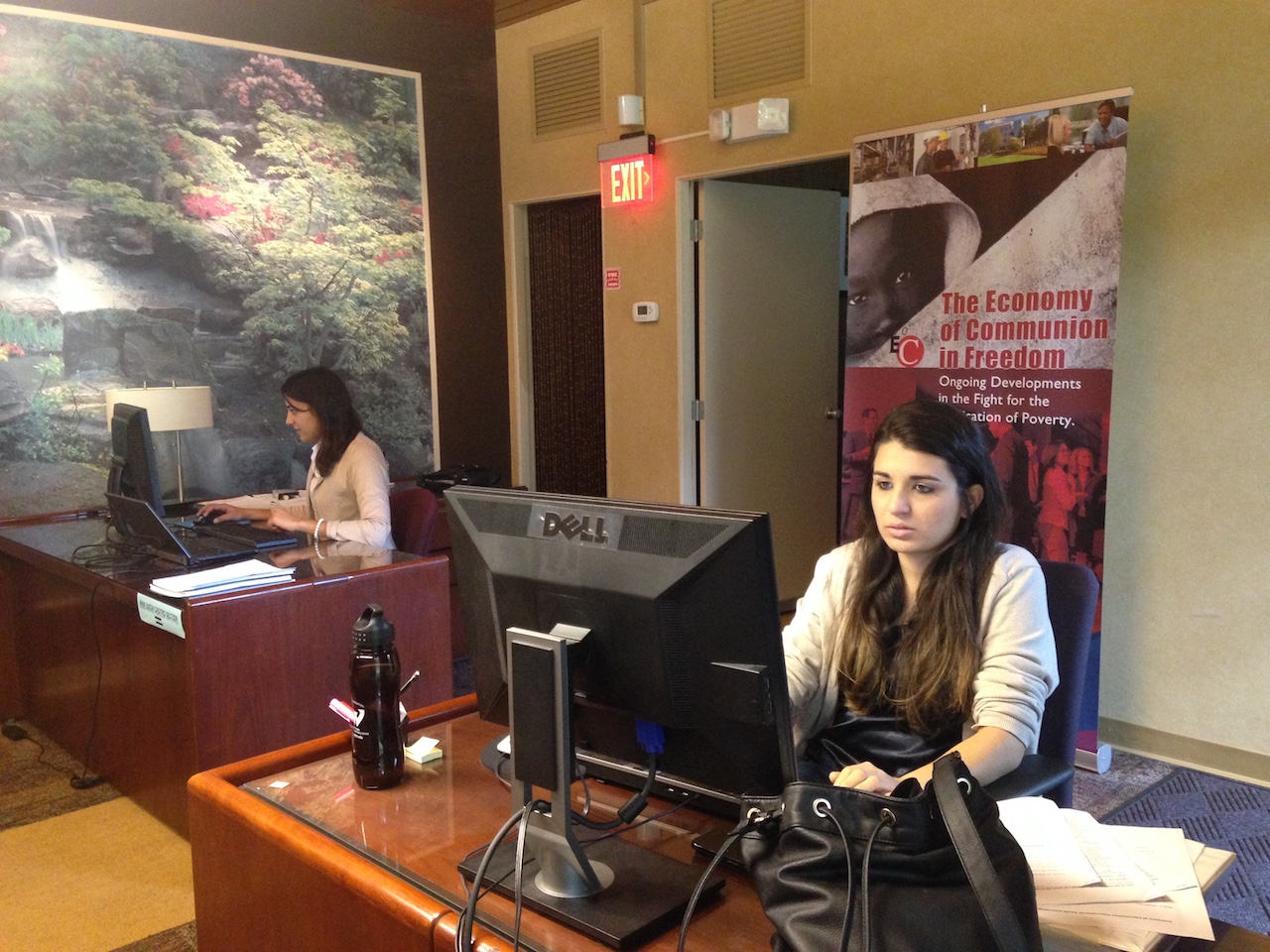
Two of our interns, one from Brazil and one from Columbia, went together to a local coffee shop near our office at lunchtime. They noticed how busy the women who owned the little shop was that day, scurrying around with a long line of customers, looking a little understaffed for the demands of the day. When they arrived at the front of the line after a long wait, they gave the women their order but said not to rush, they had plenty of time. As she caught her breath, they struck up a conversation with her about how her day was going, what had been happening in her life, and how business was going. In doing this, they understood that they were really putting into practice the vision of the EoC by entering into a relationship with this women. It turns out that the woman was not having a very good day – some mix-up had occurred in a delivery to her shop, an argument with a family member had occurred, and she was more stressed than normal. After really sharing her struggles with them, she added: “And to top it all off, today is my birthday!”
After getting their coffee, they left the shop and began talking about the lady’s situation. They decided that they would go across the street and buy her a little present, and bring it back to her. When they finally got up to the ‘next’ front of the line again, she looked at them and said ‘What are you doing back so soon?” At that point, they looked at each other, and pulled the present from behind their backs and together shouted ‘Happy Birthday!’ The women stood there for a moment in complete silence, in utter amazement. “This is for me? You did this for me?” she questioned them in disbelief. It was at that point that the woman began to cry, overcome by the generous nature of these two young people. But, the experience doesn’t end there. A few weeks later, some of our full-time employees were in the same shop, and the same lady was working. She asked them, ‘Where do you work?’ And they said: “Mundell & Associates, down the street.” The lady looked at them and exclaimed in an animated voice: “Mundell & Associates? You have the best people in the world working there!” She then recounted to the employees the story of the two interns and their act of kindness. The employees left the coffee shop that day amazed and with free coffee, feeling happy with what impact even the small things it does can have on the local community.
For me, this little ‘story’ really is an example of the revolutionary power of the Economy of Communion – this ‘culture of giving’ that goes out from the companies to the local community, transforming it, revitalizing it, making it more of a true community, and then, having been changed, the community reciprocates, giving back to the company: Sharing with it, creating a mutual giving and receiving dynamic. Imagine what the world of work would be like if this attitude spread? It is like a special, some would say ‘divine’, virus that we can infect our working world with, spreading from one person to the next one on its own, because things like this often do. When there are real and authentic expressions of caring and sharing, there is no stronger medicine that can be given to our sometimes sick and anxious world, then what the Economy of Communion has to offer.
WCD: hare an example of how you are working with suppliers and partners to improve the state of the industry or the world.
JM: Here is how we work with our suppliers – we pay them almost immediately for their goods/services – even when we are paid late by our clients or not paid at all. What does this do? It builds relationships of trust and mutual respect. What is the result? They respond incredibly fast and are super dependable. And this allows us to respond to our clients in the same way.
WCD: Tell us a special moment when a customer gave you feedback that helped you understand the difference that you are making for them and for a better world.
JM: On a recent business trip overseas, my American colleague and I were invited to a weekend dinner with our client representative, his wife and 4-year old daughter. Prior to the dinner, we had gone with him to a sporting
As I began to think about what God wanted from me
As she and I continued to have our ‘fun’, it seemed to give her mom some time to relax and talk with her husband and my friend. The atmosphere soon changed from a “business dinner” atmosphere to a “family dinner.” At the end of the evening, the little girl shook my hand and asked when we would see each other again. It felt like I had made a friend for life.
I remember riding back to the hotel that night in the taxi wondering what my client had thought about my lack of attention to him during the dinner, and whether it seemed ‘professional’. The following Monday morning at his office, we sat down to a meeting, and the first thing he said was, “You won’t believe it. It seems that the only thing my daughter wanted to talk about the rest of the weekend was YOU. I just want to thank you for the wonderful time my family had. We will have to do it again.” It was
WCD: What does your company believe in and why?
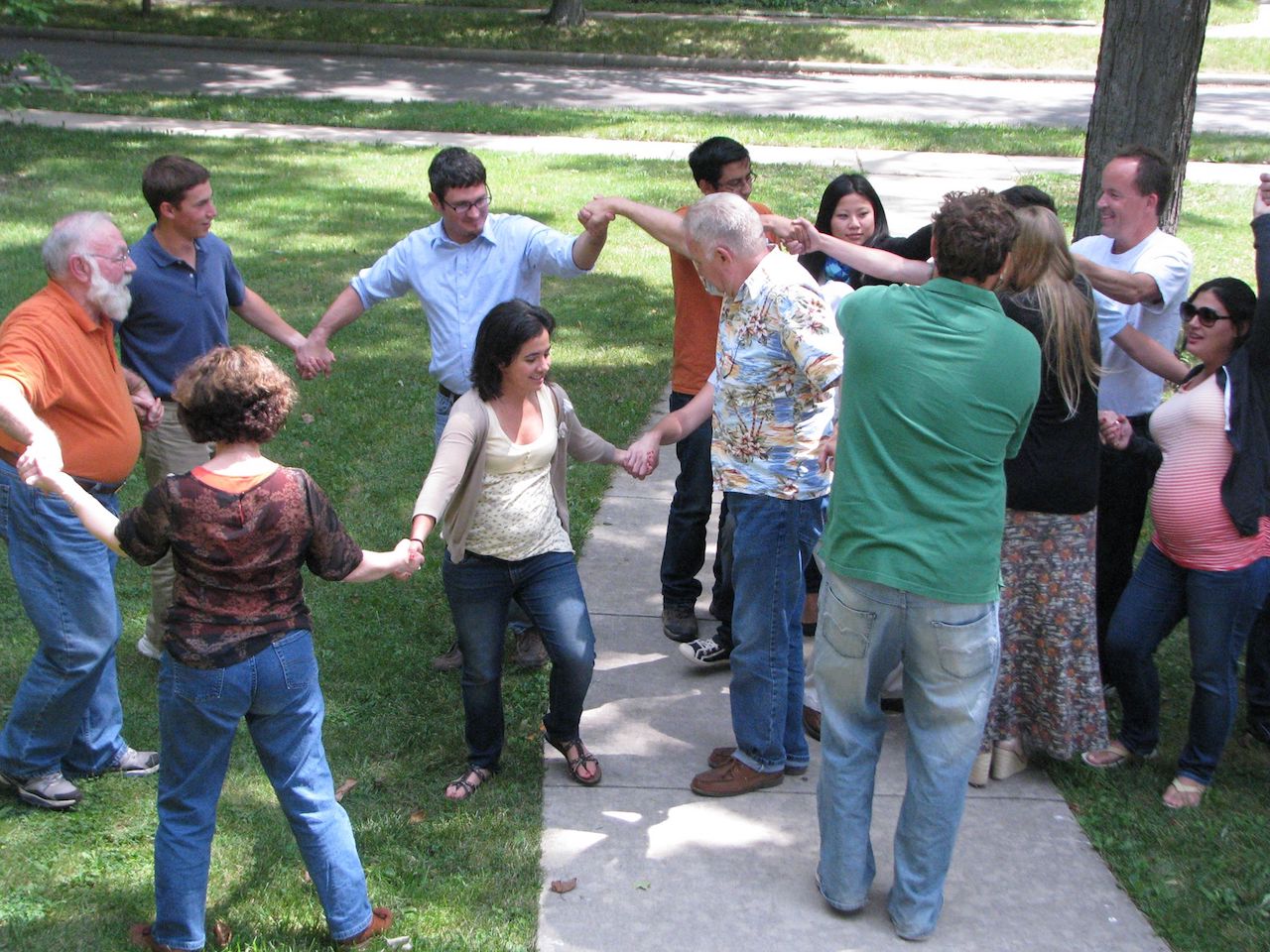
JM: We believe in building relationships over profit because that is the kind of world we want to see. We believe that all
Why do we believe this? It is part of why the company was started 23 years ago – to build this new world, renewed by companies that love, that treat others with respect, and that is an active protagonist in making it all happen.
WCD: Why is World Company Day important?
JM: This day is important so that the purpose of ‘doing business’ beyond just making profits can be highlighted. So much good in the world is happening by and through business, that it needs to be highlighted so other businesses can see what their potential is.
WCD: At the end of the day, how do you know if your company has contributed towards shaping a better world?
JM: We see a world ‘left behind’ that is different than the way we found it – its cleaner, healthier, and able to be productive for the next generation. And, it was accomplished without putting other companies out of business to do it. That’s true sustainability! After 23 years – we have a track record of hundreds of relationships and a meaningful life.
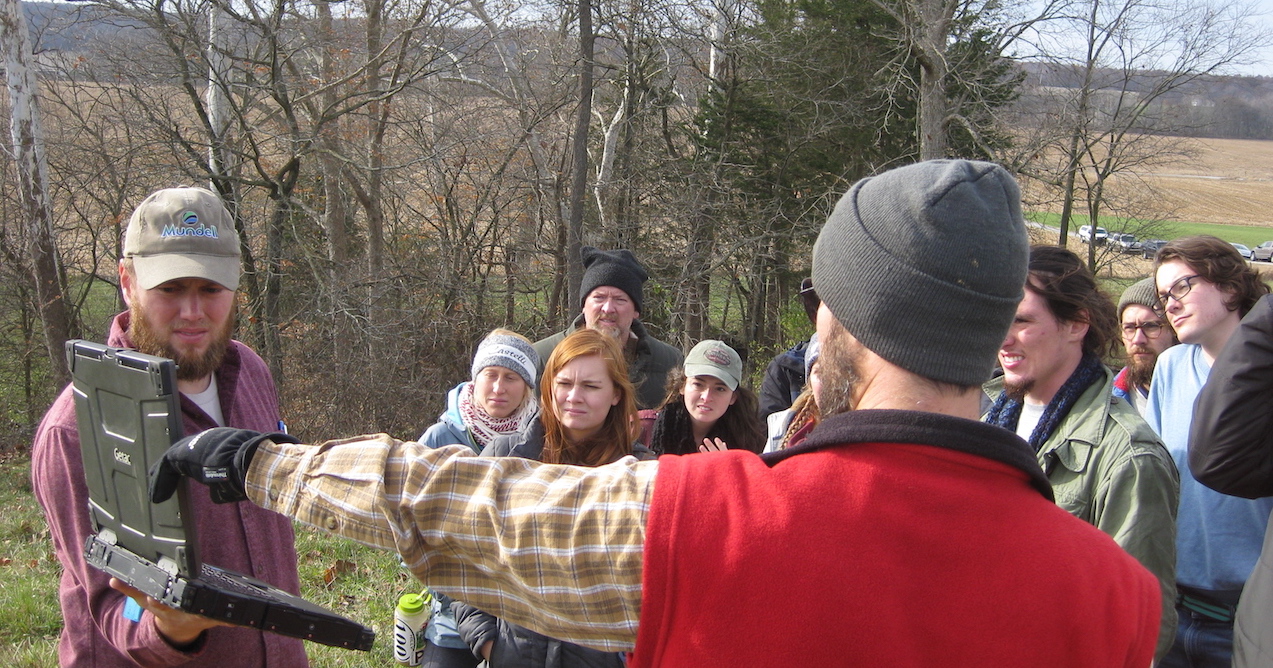
WCD: Thank you for your sharing.
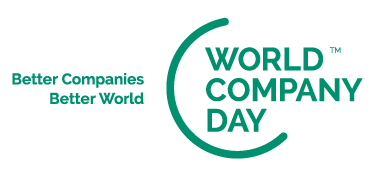
Leave a Reply